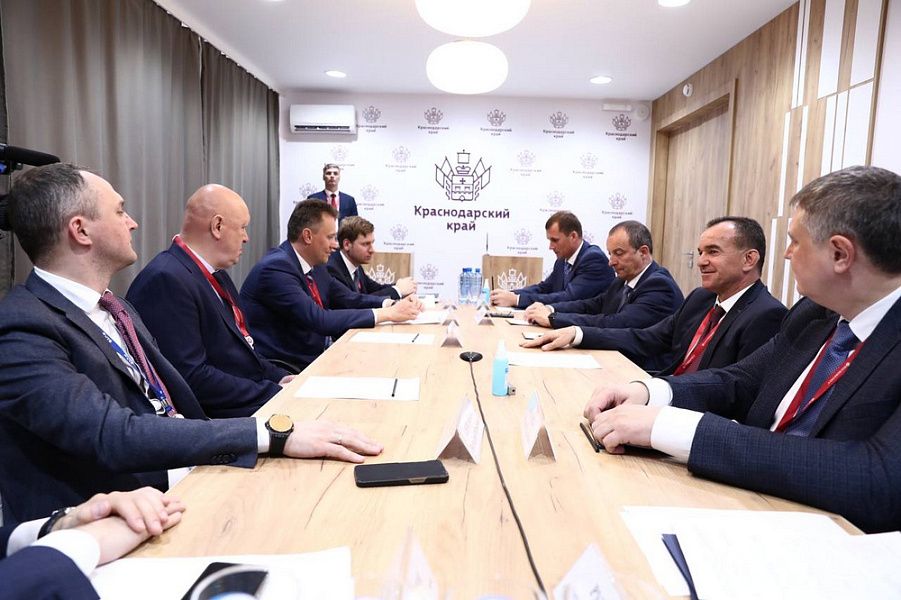
The Federal Agency for Rail Transport (Roszheldor) and Demetra-Holding signed a memorandum of understanding on a strategic partnership in the development of railway infrastructure for the transportation of agricultural products within the framework of the St. Petersburg International Economic Forum.
The document was signed by Alexey Druzhinin, head of Roszheldor, and Alexey Gribanov, CEO of Demetra-Holding, in the presence of Veniamin Kondratyev, Governor of Krasnodar Krai.
The memorandum provides for the implementation of joint programs, projects and pilot projects in order to increase the carrying capacity of the Russian transport system related to the transportation of agricultural goods by rail.
One of the planned projects is the construction of railway infrastructure for Taman Grain Terminal Complex (TGTC) with a capacity of up to 14 million tons of grain and oils per year entirely at the expense of investors – Demetra-Holding together with EFKO Group of Companies. The new railway infrastructure will allow delivering grain and oils from the central regions of Russia, as well as increasing the annual transshipment capacity of TGTC up to 5 million tons.
Alexey Gribanov, CEO of Demetra-Holding:
‘The global development strategy of Demetra-Holding implies the creation of a modern infrastructure to develop agriculture in Russia and to strengthen the country’s export potential. The terminal in Taman is one of the most promising and dynamically developing in the country. We receive cargo by road all year round, and now we will develop cargo acceptance by rail in reliable cooperation with Roszheldor and EFKO. This will expand the terminal’s grain transsipment capacity, which will increase the competitiveness and export attractiveness of Russian grain on the global markets.’
Veniamin Kondratyev, Governor of Krasnodar Krai:
‘I’m glad that we can discuss our partnerships and mutually beneficial projects on the sidelines of the forum. I’m grateful for the qualitative development of the port facilities in Taman. They were undeservedly forgotten, but now they will find a new life. The transport and railway infrastructure will begin to develop, following the port. The issues of their development and increasing their throughput capacity are among the priorities for Krasnodar Krai. The project will create new jobs and increase the tax base. And as for agricultural enterprises, it will provide an opportunity to increase their export potential and enter the world markets.’